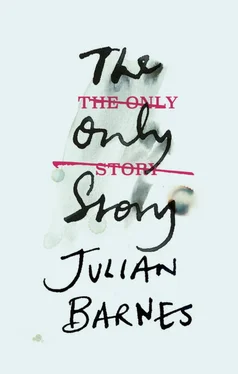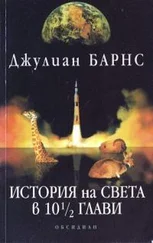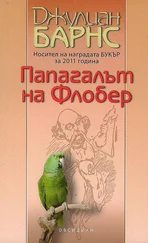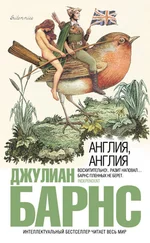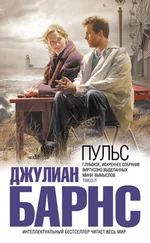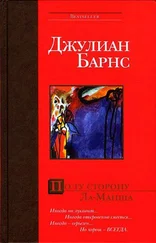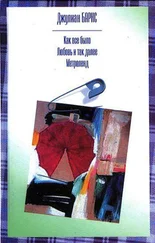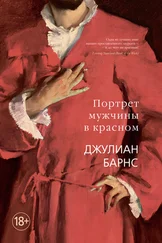Julian Barnes
THE ONLY STORY
Novel: A small tale, generally of love.
Samuel Johnson
A Dictionary of the English Language (1755)
Would you rather love the more, and suffer the more; or love the less, and suffer the less? That is, I think, finally, the only real question.
You may point out – correctly – that it isn’t a real question. Because we don’t have the choice. If we had the choice, then there would be a question. But we don’t, so there isn’t. Who can control how much they love? If you can control it, then it isn’t love. I don’t know what you call it instead, but it isn’t love.
Most of us have only one story to tell. I don’t mean that only one thing happens to us in our lives: there are countless events, which we turn into countless stories. But there’s only one that matters, only one finally worth telling. This is mine.
But here’s the first problem. If this is your only story, then it’s the one you have most often told and retold, even if – as is the case here – mainly to yourself. The question then is: do all these retellings bring you closer to the truth of what happened, or move you further away? I’m not sure. One test might be whether, as the years pass, you come out better from your own story, or worse. To come out worse might indicate that you are being more truthful. On the other hand, there is the danger of being retrospectively anti-heroic: making yourself out to have behaved worse than you actually did can be a form of self-praise. So I shall have to be careful. Well, I have learned to become careful over the years. As careful now as I was careless then. Or do I mean carefree? Can a word have two opposites?
The time, the place, the social milieu? I’m not sure how important they are in stories about love. Perhaps in the old days, in the classics, where there are battles between love and duty, love and religion, love and family, love and the state. This isn’t one of those stories. But still, if you insist. The time: more than fifty years ago. The place: about fifteen miles south of London. The milieu: stockbroker belt, as they called it – not that I ever met a stockbroker in all my years there. Detached houses, some half-timbered, some tile-hung. Hedges of privet, laurel and beech. Roads with gutters as yet unencumbered by yellow lines and residents’ parking bays. This was a time when you could drive up to London and park almost anywhere. Our particular zone of suburban sprawl was cutely known as ‘The Village’, and decades previously it might possibly have counted as one. Now it contained a station from which suited men went up to London Monday to Friday, and some for an extra half-day on Saturday. There was a Green Line bus-stop; a zebra crossing with Belisha beacons; a post office; a church unoriginally named after St Michael; a pub, a general store, chemist, hairdresser; a petrol station which did elementary car repairs. In the mornings, you heard the electric whine of milk floats – choose between Express and United Dairies; in the evenings, and at weekends (though never on a Sunday morning) the chug of petrol-driven lawnmowers.
Vocal, incompetent cricket was played on the Village green; there was a golf course and a tennis club. The soil was sandy enough to please gardeners; London clay didn’t reach this far out. Recently, a delicatessen had opened, which some thought subversive in its offerings of European goods: smoked cheeses, and knobbly sausages hanging like donkey cocks in their string webbing. But the Village’s younger wives were beginning to cook more adventurously, and their husbands mainly approved. Of the two available TV channels, BBC was watched more than ITV, while alcohol was generally drunk only at weekends. The chemist would sell verruca plasters and dry shampoo in little puffer bottles, but not contraceptives; the general store sold the narcoleptic local Advertiser & Gazette , but not even the mildest girlie mag. For sexual items, you had to travel up to London. None of this bothered me for most of my time there.
Right, that’s my estate agent’s duties concluded (there was a real one ten miles away). And one other thing: don’t ask me about the weather. I don’t much remember what the weather has been like during my life. True, I can remember how hot sun gave greater impetus to sex; how sudden snow delighted, and how cold, damp days set off those early symptoms that eventually led to a double hip replacement. But nothing significant in my life ever happened during, let alone because of, weather. So if you don’t mind, meteorology will play no part in my story. Though you are free to deduce, when I am found playing grass-court tennis, that it was neither raining nor snowing at the time.
The tennis club: who would have thought it might begin there? Growing up, I regarded the place as merely an outdoor branch of the Young Conservatives. I owned a racket and had played a bit, just as I could bowl a few useful overs of off-spin, and turn out as a goalkeeper of solid yet occasionally reckless temperament. I was competitive at sport without being unduly talented.
At the end of my first year at university, I was at home for three months, visibly and unrepentantly bored. Those of the same age today will find it hard to imagine the laboriousness of communication back then. Most of my friends were far-flung, and – by some unexpressed but clear parental mandate – use of the telephone was discouraged. A letter, and then a letter in reply. It was all slow-paced, and lonely.
My mother, perhaps hoping that I would meet a nice blonde Christine, or a sparky, black-ringleted Virginia – in either case, one of reliable, if not too pronounced, Conservative tendencies – suggested that I might like to join the tennis club. She would even sub me for it. I laughed silently at the motivation: the one thing I was not going to do with my existence was end up in suburbia with a tennis wife and 2.4 children, and watch them in turn find their mates at the club, and so on, down some echoing enfilade of mirrors, into an endless, privet-and-laurel future. When I accepted my mother’s offer, it was in a spirit of nothing but satire.
I went along, and was invited to ‘play in’. This was a test in which not just my tennis game but my general deportment and social suitability would be quietly examined in a decorous English way. If I failed to display negatives, then positives would be assumed: this was how it worked. My mother had ensured that my whites were laundered, and the creases in my shorts both evident and parallel; I reminded myself not to swear, burp or fart on court. My game was wristy, optimistic and largely self-taught; I played as they would have expected me to play, leaving out the shit-shots I most enjoyed, and never hitting straight at an opponent’s body. Serve, in to the net, volley, second volley, drop shot, lob, while quick to show appreciation of the opponent – ‘Too good!’ – and proper concern for the partner – ‘Mine!’ I was modest after a good shot, quietly pleased at the winning of a game, head-shakingly rueful at the ultimate loss of a set. I could feign all that stuff, and so was welcomed as a summer member, joining the year-round Hugos and Carolines.
The Hugos liked to tell me that I had raised the club’s average IQ while lowering its average age; one insisted on calling me Clever Clogs and Herr Professor in deft allusion to my having completed one year at Sussex University. The Carolines were friendly enough, but wary; they knew better where they stood with the Hugos. When I was among this tribe, I felt my natural competitiveness leach away. I tried to play my best shots, but winning didn’t engage me. I even used to practise reverse cheating. If a ball fell a couple of inches out, I would give a running thumbs up to the opponent, and a shout of ‘Too good!’ Similarly, a serve pushed an inch or so too long or too wide would produce a slow nod of assent, and a trudge across to receive the next serve. ‘Decent cove, that Paul fellow,’ I once overheard a Hugo admit to another Hugo. When shaking hands after a defeat, I would deliberately praise some aspect of their game. ‘That kicker of a serve to the backhand – gave me a lot of trouble,’ I would candidly admit. I was only there for a couple of months, and did not want them to know me.
Читать дальше
